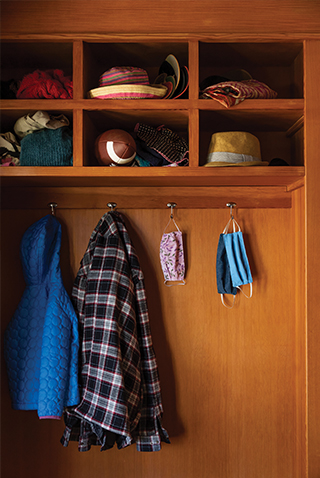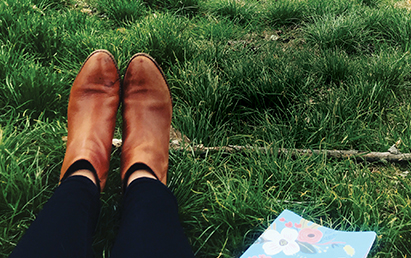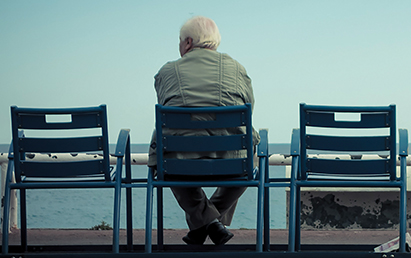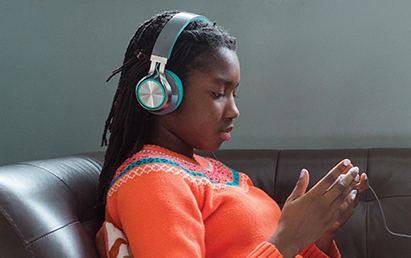We are now nearly two months into the quarantine at the time of this writing and for most families that means people have started to crack. The original phase of denial, panic buying, and “super parenting” has come to pass. Most families have started to realize that some form of isolation, social distancing, and a different type of summer is ahead of us. As summer camps are starting to cancel enrollment, more and more parents are reaching out for mental health support to figure out how to actually survive quarantine with their own family. The following is meant as a guide to set yourself up for “success” in the upcoming months as we start to find sustainable ways of living this new “normal.”
Step 1 – Compassion
It’s important to start this process off with compassion—compassion for your children, for your spouse or partner, for your pets, and most importantly, for yourself. Most of us are having difficulty adjusting to working from home, homeschooling, and being around our spouse 24/7. The reason why this is so difficult is twofold. Firstly, most of us did not set up our lives this way. We set up our lives with time for work, time for family, time for spouse, and time for self. Most of us have been working for years to achieve work-life balance. It is important to recognize that this is not how we choose to live our lives and so it’s okay to have growing pains. It should be expected to have good days, mediocre days, and tough days. The roller coaster of emotions that families are feeling is to be expected.
The second reason we struggle is because the quarantine was imposed on us. We are not used to restrictions. We are used to freedoms and choices and the freedom to live our lives in the way we choose. Therefore, being told by the government how to live our lives, and whom to see is a novel experience. This loss of freedom can be very difficult to face. It can be met with anger, resentment, helplessness, and hopelessness. It is important to once again show compassion and empathy for whatever emotions you face regarding this new restricted form of life.
Step 2 – Blame versus responsibility
This is a concept that Mark Manson (2016) highlights in his book The Subtle Art of Not Giving a F*cK. Oftentimes, we believe that the terms are interchangeable. This is because we often equate it with events like car accidents. In car accidents, the person who is to blame for the accident is the one responsible to pay the damages. However, as Manson explains, blame and responsibility are two different things. We are not to blame for the new virus that is highly contagious and has, to date, killed more than 230,000 people (Johns Hopkins University and Medicine, 2020). That is not our fault. However, we are responsible for how we choose to respond to it. Most of us have responded to this pandemic by following CDC guidelines regarding social distancing, wearing masks, and avoiding leaving the house unless it’s absolutely necessary. This is an obvious way that most of us have shown responsibility.
However, we are also responsible for how we react to this pandemic in terms of our emotions, our relationships, and our thinking. The people who appear to cope the best are the ones who take responsibility for these factors. Choosing to take responsibility for your emotions might look like voicing frustrations with a partner, taking a few deep breathes when a child becomes irritating, or simply recognizing that you are having a bad day. It’s unrealistic to expect every day to go smoothly given all of the stressors that we have in our lives right now. But we can choose to remember the positive moments of each day. We can also choose to turn our mood around and try to choose to engage in more self-care activities when we start to notice sadness, and anxiety creeping in.
 In terms of relationships, we should take responsibility for how we interact with those around us. Between the pressures of homeschooling, working from home, and managing the household, it is easy to become overwhelmed with a “must get things done” attitude. The problem with this mindset is that children frequently start to be viewed as obstacles to getting our work done resulting in increased stress and conflict at home. In this moment of uncertainty, it is better to take responsibility of our own emotions and choose human connection and compassion. Especially for parents, it is important to remember that your children look to you for guidance. They might not understand that it’s been over a century that there has never been a world-wide pandemic. They might not understand why they can’t go to the playground anymore. But they do understand mom (or dad) and her (or his) emotions. They can tell when a parent is upset, stressed or anxious. We set the tone of our house and if we set a tone of anxiety and stress, then children will follow that lead.
In terms of relationships, we should take responsibility for how we interact with those around us. Between the pressures of homeschooling, working from home, and managing the household, it is easy to become overwhelmed with a “must get things done” attitude. The problem with this mindset is that children frequently start to be viewed as obstacles to getting our work done resulting in increased stress and conflict at home. In this moment of uncertainty, it is better to take responsibility of our own emotions and choose human connection and compassion. Especially for parents, it is important to remember that your children look to you for guidance. They might not understand that it’s been over a century that there has never been a world-wide pandemic. They might not understand why they can’t go to the playground anymore. But they do understand mom (or dad) and her (or his) emotions. They can tell when a parent is upset, stressed or anxious. We set the tone of our house and if we set a tone of anxiety and stress, then children will follow that lead.
Finally, we need to take responsibility of what we think. If we have thoughts like “this isn’t fair” or “I feel trapped” or “my spouse is being lazy” we will end up turning on each other. Thoughts like “my kid is so whiny” will only lead us down a road of anger, resentment, and frustration. What we think molds the way we interact with our world. Our thoughts are the primary way in which we experience life. So, our thoughts need to protect us. We must choose thoughts that help us thrive, that give us hope, and that’ll allow us to connect as humans.
It is important to recognize that taking responsibility for our emotions, our thoughts, and the ways we connect with others is very difficult. It is easier to blame others, to be filled with resentment and anger, and to go down the path of helplessness and hopelessness. It is okay if that is the path that you have been on so far. However, as we start to recognize that this new way of life will last longer than expected, it is now time to take responsibility for a way to live life that is not only sustainable, but also has moments of happiness and connection.
Step 3 – The Family Gap Plan
As it became clearer that this quarantine was going to last longer than expected, renowned author Brené Brown started a podcast. In one of her earliest podcasts in March 2020, she revealed her Family Gap Plan. She explains that there is a misconception in a relationship that each partner should be contributing fifty percent; that each partner should contribute equally. She highlights that for many of us, we are sometimes unable to contribute equally to our relationship. This makes sense because we’ll have good days and bad days. Instead she recommends that as a couple (together) we must meet a hundred percent. So, if you were functioning at a lower percentage one day because you’re having a bad day, the idea is that your partner would be able function at a higher level so that combined, you can reach a hundred percent (e.g., you might be at a forty percent and your partner might be at a sixty percent). This is all well and good as long as you are able to hit hundred percent combined. But what happens when you’re each struggling? What do you do when you face a worldwide pandemic, you’re working from home, your children are home all the time, and you worry about the health and safety of loved ones?
This is where the Family Gap Plan comes into play. The plan bridges the gap between where you are as a couple and the hundred percent mark. So, if you are functioning at forty percent, and your partner is functioning at forty percent, the plan gives you that extra twenty percent that you need to hit a hundred. It’s a way to ensure that everybody’s needs are being met in the family when we are struggling.
Brown (2020) recommends that we sit down as a family to create a plan that works for each individual family. Plans can include all kinds of ideas and activities. Things that work for our family and for many others include:
- Ensuring that everybody gets enough sleep (8 hours)
- Making sure we are all drinking enough water
- Making sure that each adult gets at least 30 minutes alone time a day to focus on self-care
- Reaching out to loved ones with video calls in order to remain connected and supported.
The key to a successful plan is to use strategies that will actually help stabilize, ground and connect you. Coping strategies such as binge eating, increased screen time, and drinking alcohol are only momentary reliefs that will not provide actual long-term stability and growth. It’s okay to indulge in these coping skills once in a while, but if they become your primary way of dealing with this pandemic you will end up feeling burnt out, isolated, and possibly depressed. It is important to remember that families are unique ecosystems in our community, and each family should create a plan that works for them.
As we face more uncertainty, and a summer like no other, it is important to remain compassionate with ourselves, our children, our spouses, our pets, our parents, and those around us. We are doing the best we can. We are all facing good days and bad days. Soon we will be able to see each other again, hug each other again, and connect in the ways that help us thrive. Until then please remember to be compassionate, take responsibility, and create a family plan that works for you.

Linda Meier Abdelsayed is a licensed marriage and family therapist in California and Illinois. She is the founder of Smart Talk (www.smarttalktherapy.com ), a teletherapy private practice whose focus is to improve the quality of life for clients living in California, Florida, Georgia, Hawaii, Illinois, New York, and internationally. She is a Clinical Fellow of AAMFT. She also has a private practice in Newport Beach, California
(www.smarttalkoc.com).
REFERENCES
Brown, B. (Host). (2020, March 27). Brené on comparative suffering, the 50/50 myth, and settling the ball [Audio Podcast]. Retrieved from https://brenebrown.com/podcast/brene-on-comparative-suffering-the-50-50-myth-and-settling-the-ball/
Johns Hopkins University and Medicine. (2020, April 30). Coronavirus Resource Center. Retrieved from https://coronavirus.jhu.edu/
Manson, M. (2016). The subtle art of not giving a fu*k: A counterintuitive approach to living a good life. New York: HarperOne, an imprint of HarperCollins.
Other articles
Ecotherapy: A Natural Approach for Today’s Mental Health Challenges
The healing and transformative power of nature is well known, and ecotherapy, incorporating the outdoors into psychotherapy, is a growing treatment modality every therapist can be considering right now.
Lauren Kahn, MSW
Loneliness: Research and Treatment Strategies
Loneliness is having an impact around the world during the pandemic. What do we know about loneliness research and how might we tackle this problem with isolated clients?
Kevin Smith, MS
COVID-19 and School Closures
Many schools may now be closed, but a systemic therapist working in a public high school explains how she kept students on track with telehealth services.
Mayumi Y. Douglass, MS



